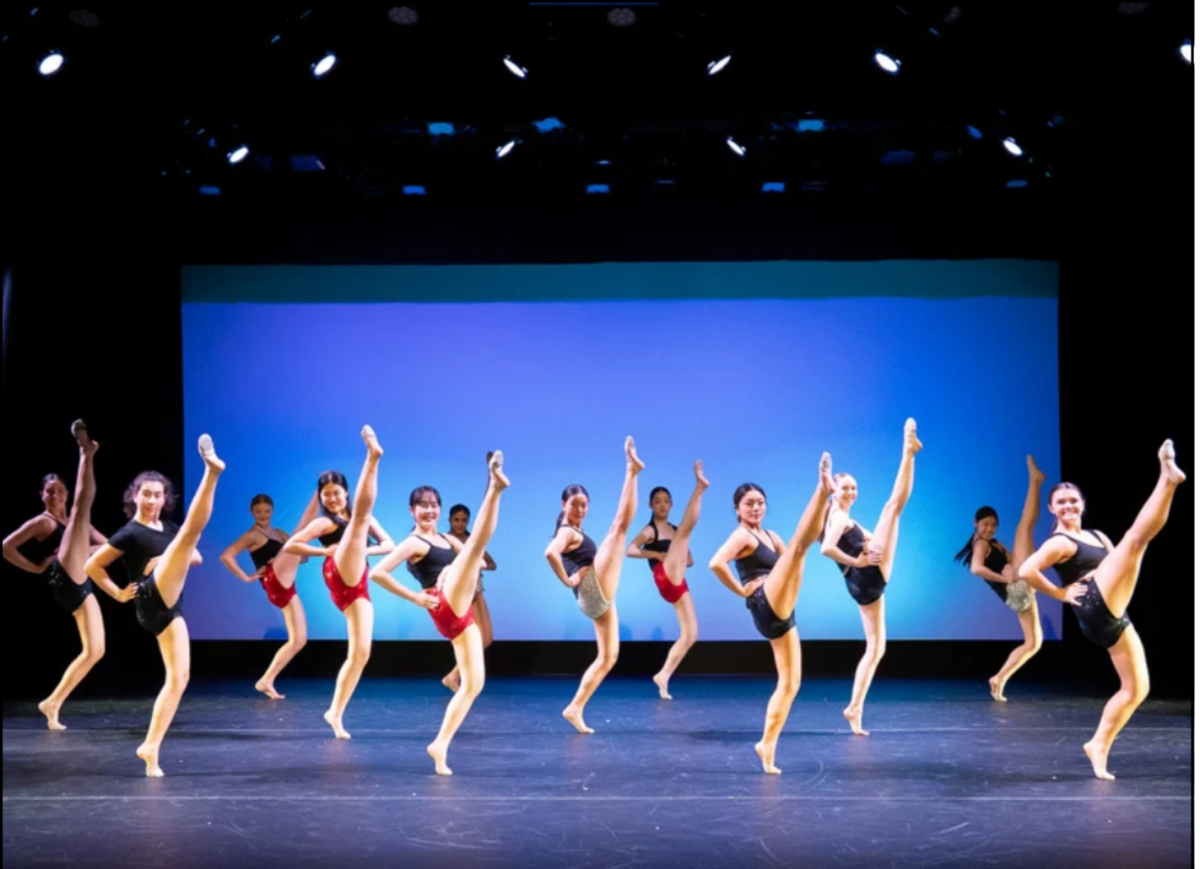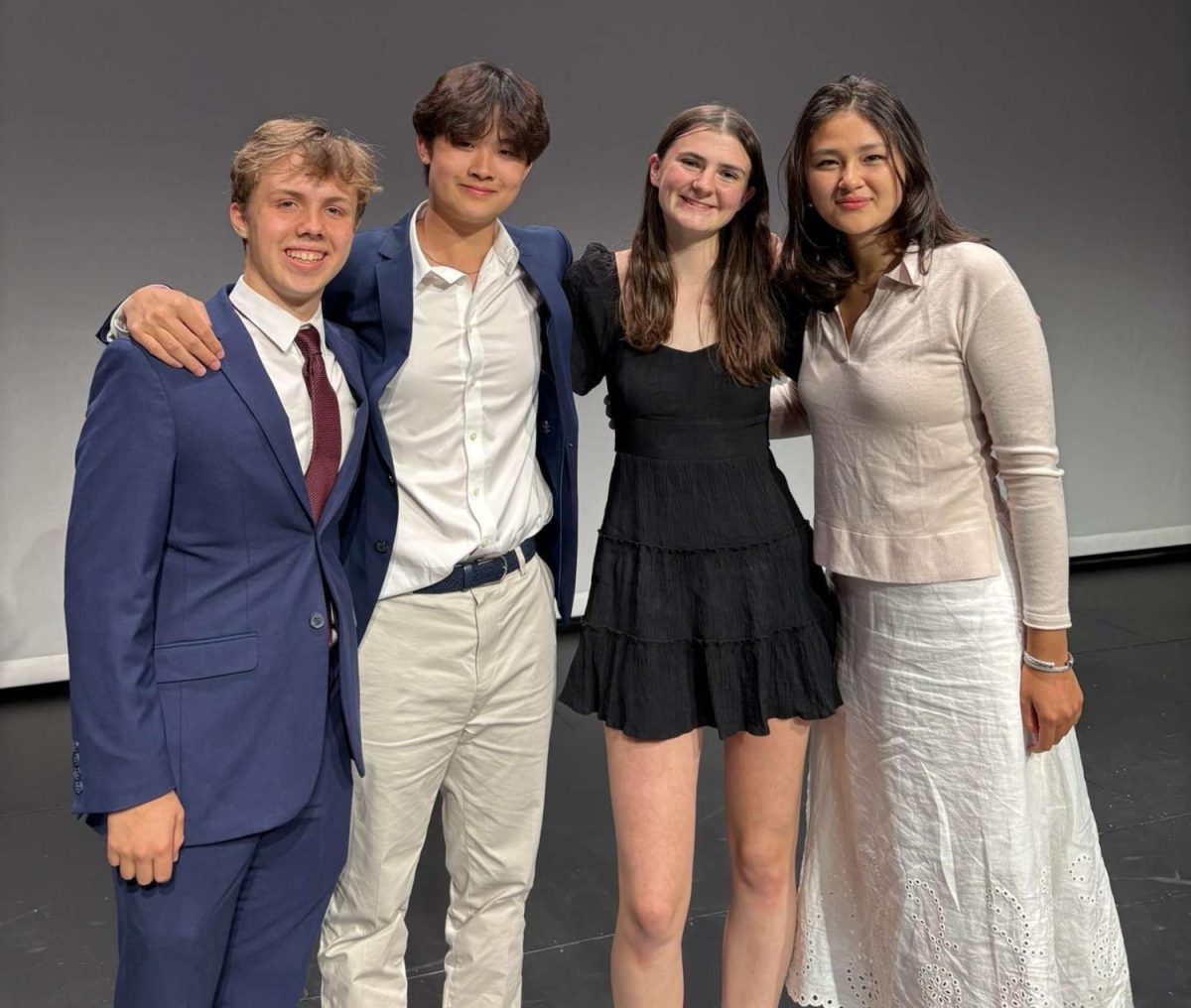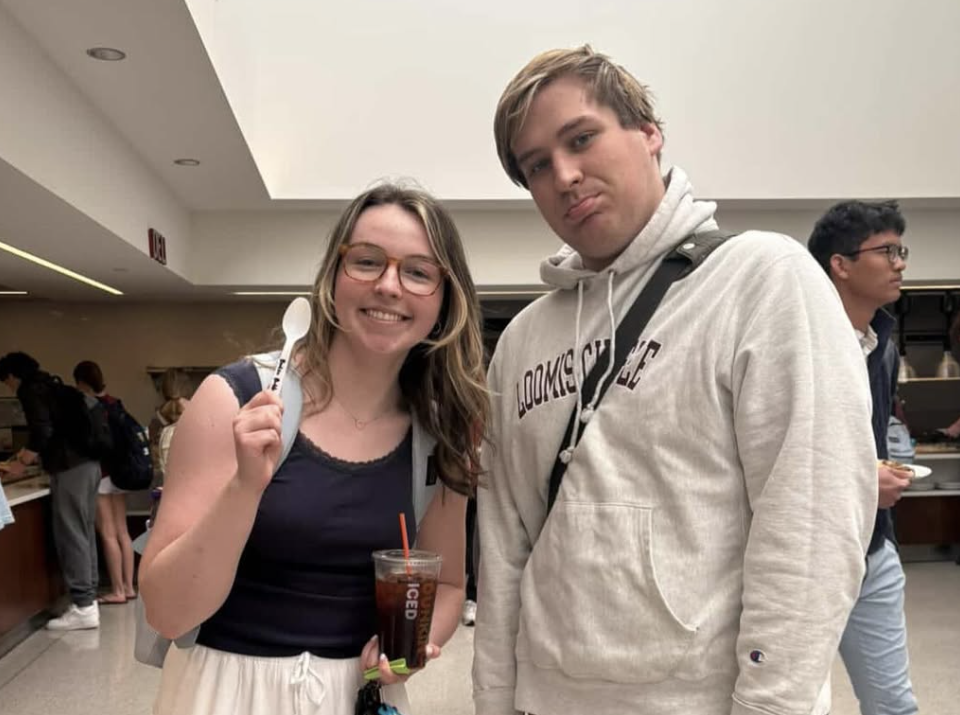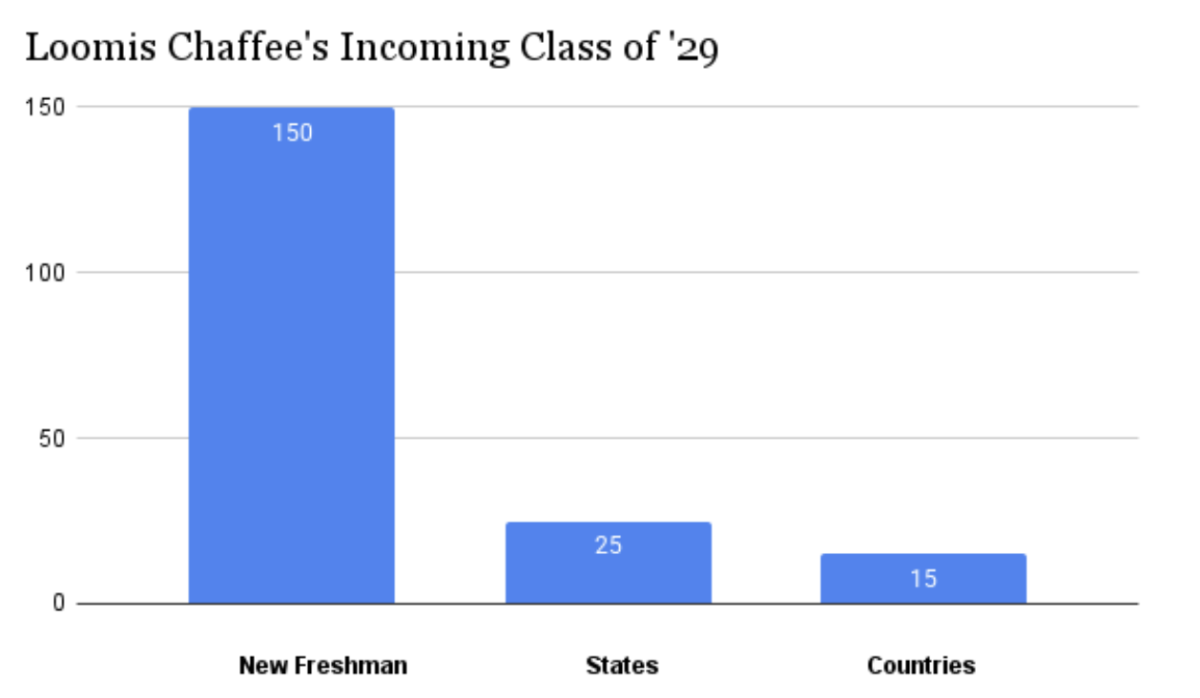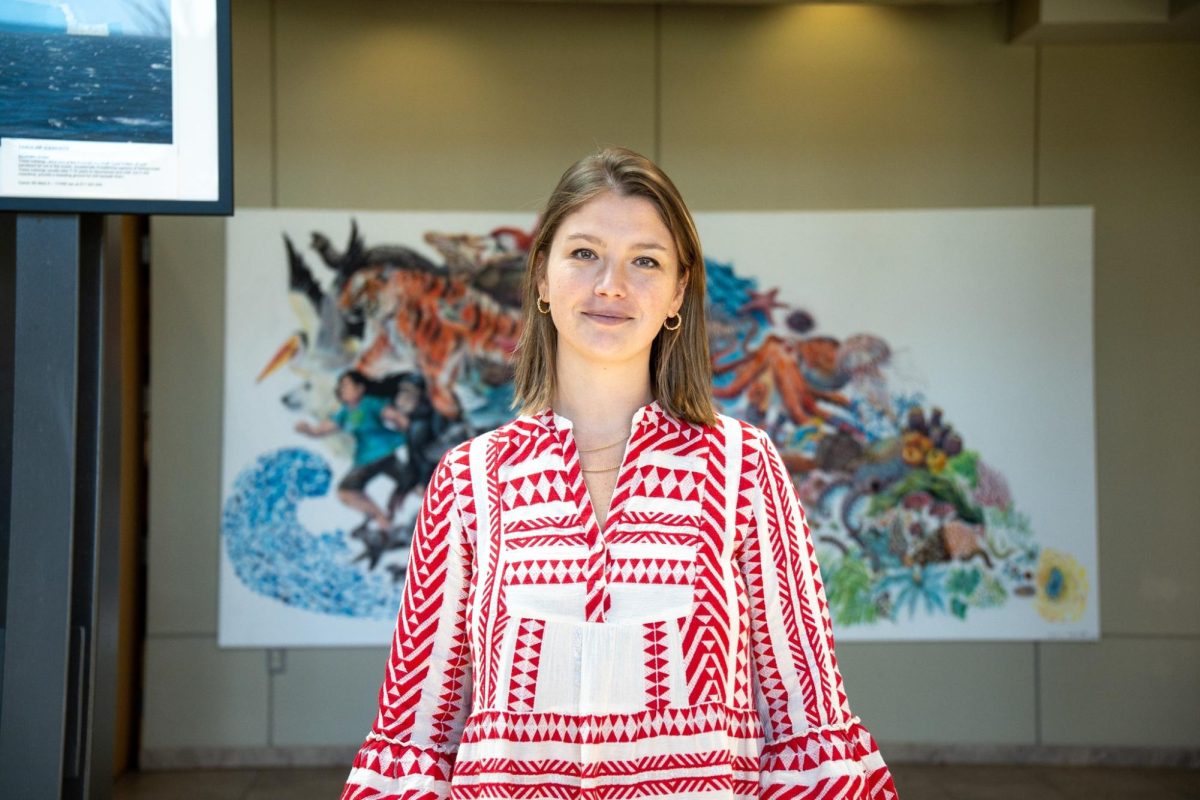On September 17, Brian Rooney ‘70, a two-time winner of the Emmy award and a veteran of print and television news, returned to the Island as our first convocation speaker of the year. Having worked as a correspondent for ABC News, CBS News, Al Jazeera English, and Al Jazeera America, Mr. Rooney is also the author of his own Rooney Report, “All the news that fits on one page.” Mr. Rooney has covered many major events over the years, including the 2004 Indian Ocean tsunami, the 1995 Oklahoma City bombing, the 1994 rebellion in Chiapas, Mexico, the 1992 Los Angeles riots, and the 1991 Persian Gulf War. After graduating from Loomis Chaffee, Mr. Rooney attended Colgate University with a Bachelor of Arts in English and continued his studies at the Columbia University Graduate School of Journalism, where he received a Masters of Science degree.
GY: What are your fondest memories of being a student at Loomis? How was the news meaningful to you back then?
BR: I have a lot of great memories from Loomis. We had excellent teachers… Jim Wilson taught me history and economics. One day I scored three goals in a hockey game and once in a lacrosse game I took five shots and scored five goals. I acted in the theater and was a member of the Pirandello Society. We wrote a satire show in 1969 that some people remember to this day.
As you know, I attended Loomis in the late 1960s, a turbulent time in America, during the war with Vietnam…There were protests, with people not much older than I was at the time rallying in the streets. Accessing information was not easy, but I did watch television news, read the New York Times, and visit the library.
JL: What inspired you to become a journalist besides your father’s example? Could you share an anecdote with us?
BR: Well, first off, I did not work for the Log. However, my senior year, I was the editor-in-chief of the yearbook, the Loomiscellany. If you look at the shelf with all the yearbooks lined up, it’s the first one with the different color, with a big peace sign on the cover. It was my first experience in being able to look at things in a different way, shattering the traditional way of doing the yearbook.
GY: Your daily news digest, “The Rooney Report,” really does make news accessible to the reader. How do you suggest we filter the news when we’re bombarded by information?
BR: Focus, for me, comes with years of news judgment. I filter out things that could happen, such as political proposals…There are the obvious, such as the migration crisis, drought in California, politics, but I also dig up facts that other outlets are not paying attention to. For example, so many presidential candidates say they’ll get rid of Obamacare right away, but 8.8 million Americans who previously did not have health insurance got it last year mostly through Obamacare. You can’t help but think, “Really? Get rid of Obamacare?” When I started writing these reports, I wanted to give it a voice that was different. Everybody should go to deeper sources of news; I do this easy little digest, but I hope people will read more into what they see on here.
JL: We know that you’ve covered so many crucial cases and events in history, from the 1989 student uprising in Tiananmen Square to the wildfires that spread in southern California. What goes through your mind when you encounter disastrous, controversial issues? What are your priorities in coverage?
BR: Covering disasters, we always used to joke about finding the nearest trailer park, because it was likely to be hit the worst. You have to get in there and find where the worst damage is and who’s been killed or injured. You talk to people who witnessed the disaster, and in television you find out if anyone has amateur video. The job is to get in there and find out what happened, and while you need to be sympathetic to the people affected, giving sympathy is not why you are there.
GY: You wrote two years ago in your article “The Worst Work of Journalism” that “Journalism requires that you give a victim of murder a face and a voice…It seems strange that this process needs to be repeated, but otherwise the dead are just numbers. To show them as human requires reporters to knock on the door, a moment that makes you want to be sick every time.” From “Liar, Liar” when you spoke about falling into the trap of doing a story on the deceptive “ophthalmologist” in Kuwait you wrote, “Lurking beneath the cynical disbelief of every reporter is a deep desire to believe what you are told.” Two very poignant moments. How do you overcome these challenges to be a good journalist?
BR: You just do them. A lot reporters get labeled as ghouls, but what you’re trying to do is to say, “This is a human being with value, with ideas, lost to the people who love them.” It is this that shows the world just how bad these shootings, these murders are. The surprising thing is just how many families are willing to talk. It’s true they are so grief-stricken they don’t think about where the conversation is going, but they are really just thinking about the conversation with the person who just wants to know and say things that they would only tell someone close to them.
JL: To students who aspire to become journalists and writers, what advice would you give to them? Are there any specific skills Loomis students should focus on honing?
BR: For anyone who wants to be a journalist, no matter what kind, you have learn to write. Writing is thinking, and if you can be concise and accurate, you will be valuable.
GY: Could you talk a bit more about one aspect of journalism that you’ve come to value most?
BR: I think the value in journalism is its ability to help us break through the social barriers that limit us. In my lifetime we’ve had enormous changes in civil rights, how we think about homosexuality, mental illness, and the authority of government. A lot of that change is because journalism created a national discussion. Journalism makes our lives better.
JL/GY: Thank you so much for your response. We really appreciate the experiences you’ve shared with us, and we hope your stories will inspire students and generate more conversation about journalism as the year goes on.


